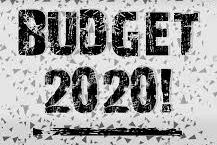The new Chancellor Rishi Sunak announced the forthcoming budget in Parliament on Wednesday, having taken the post with little time to prepare. As such, the budget for 2020-21 contained a mix of the expected and unexpected whilst introducing a raft of measures to help prepare British businesses for the potential effects of both leaving the European Union and the Coronavirus.
Personal Tax & Allowances
There were no adjustments made to the personal allowance or tax thresholds this year for the first time since 2015. However, the Chancellor confirmed that from the 6th of April 2020 the primary National Insurance threshold is set to increase for the third year in a row, rising from £8,632 to £9,500, the largest increase for a decade.
Also announced was a slight increase in the Capital Gains Tax annual exemption of £300, bringing the total exemption to £12,300 per annum. Sunak also increased the amount that can be saved annually in the tax-free Junior ISA and Child Trust Fund schemes, which was more than doubled to a total of £9000 from the 6th of April.
One of the surprises from the budget was the turnaround on Entrepreneurs Relief, which had previously been earmarked for the scrapheap. Whilst it has avoided the axe for this year, the lifetime amount has been drastically reduced from £10m to £1m. Finally, some high-earning doctors may see their tax
recalculated as part of a series of initiatives aimed at attracting and retaining NHS staff via a large increase in threshold income for the annual allowance, raising it from £110,000 to £200,000. This will apply to all high earners, enabling them to increase their pension contributions.
National Living Wage
The National Living wage is set to increase as previously announced, along with rises for under-25 workers and apprentices:
- 25 and over - from £8.21 to £7.72
- 21 to 24 - from £7.70 to £8.20
- 18 to 20 – from £6.15 to £6.45
- Under 18 – from £4.35 to £4.55
- Apprentices – from £3.90 to £4.15
VAT
Current VAT Rates will remain unchanged for 2020-21, but there have been some small changes made to the VAT status of particular items. From 1st December 2020, VAT will be zero-rated on digital publications such as online newspapers, e-books and academic journals, bringing them in line with their physical counterparts.
In a long-anticipated move, the 5% VAT rate applied to women’s sanitary products has also been scrapped, and from January 2021 these items will be zero-rated.
Travel & Infrastructure
Once again fuel duty has been frozen for the ninth year in a row, providing some breathing room for businesses that were perhaps expecting a rise after the announcement of incentives for new electric vehicles back in October.
There were however several measures introduced that were aimed at electric vehicles:
- Zero-emission cars will be exempt from the Vehicle Excise Duty expensive car supplement until 2025.
- From April 2021, the Van Benefit Charge will be applied at a nil rate to zero-emission vans.
- An increase and extension to the Plug-in Car Grant, coupled with an intention to deploy rapid-charging points across the United Kingdom to ensure motorists are always no more than 30 miles away from a charging point.
Also included in the section on transport was a commitment to spend more than £30 billion on upgrading and fixing roads, along with a variety of regional grants for improving transport infrastructure including rail and bus services.
For those in construction, access to red diesel will be restricted from April 2022 to only the agricultural and rail industries. This means that any plant or heavy machinery will be required to use normal diesel fuel available at the standard rather than reduced duty. This timing coincides with a plan to raise the tax rate on gas to the same level as electricity.
The rollout of broadband will continue with an extra £5 billion of funding allocated to enabling gigabit-broadband to all corners of the United Kingdom.
Other taxes and measures
Looking at a few other announcements from the budget, alcohol duty is to be frozen for the year to help small businesses with their costs, however taxes on tobacco will continue to increase at a rate of 2% above inflation. Pub owners will see their business rate discount increase to £5,000 from the previous £1,000 for the 2020-21 tax year.
The stamp duty surcharge for foreign buyers of property will be 2% from April 2021 if purchasing property in England or Northern Ireland, and big tech firms such as Google and Facebook will see a new ‘digital services tax’ applied to their revenue at a rate of 2% from the 1st April 2020.
Coronavirus
The Chancellor made a wide array of announcements to help small businesses cope with the COVID-19 pandemic, starting with an agreement with the Bank of England to reduce the interest rate to 0.25% to encourage borrowing. We have gone into full detail on these measures in a separate article available here.
If you have any queries or questions about the budget, please don’t hesitate to get in touch with one of our accountants to find out more.
Topics
Archive
- 2024
- March 2024 (1)
- January 2024 (1)
- 2023
- December 2023 (2)
- November 2023 (2)
- September 2023 (2)
- August 2023 (1)
- July 2023 (3)
- June 2023 (3)
- May 2023 (2)
- April 2023 (1)
- March 2023 (4)
- February 2023 (2)

